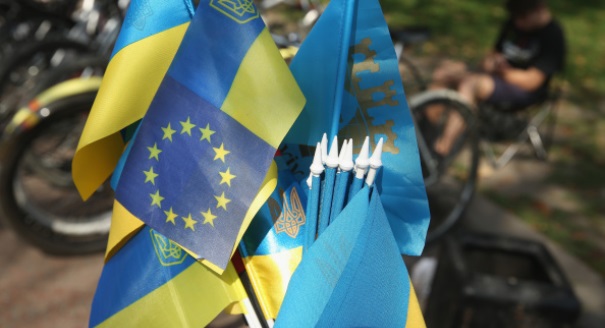European governments have held together over Ukraine, largely thanks to Angela Merkel, the German chancellor. She has held her nerve during the crisis. Without her steely determination, it is highly unlikely that the EU would have imposed sanctions on Russia for its interference in eastern Ukraine.
The sanctions come up for renewal in late June 2015. The chances are that EU leaders will extend the measures. But don’t think that the whole union is holding firm over Ukraine. There are enough European leaders and political elites who would prefer a resumption of relations with Russia.
These elites even go so far as to argue—as Russia expert Lilia Shevtsova explains in her latest, powerful essay—that Russia has been humiliated. Ever since the fall of the Soviet Union in 1991, these leaders have suggested that the West was out to demean Moscow. Their conclusion is that it’s time to be more accommodating to Russia.
The OSCE was aimed at building some kind of trust and dialogue between the West and Russia. But Russia’s role in the organization, in which it has a veto, has robbed the OSCE of any serious clout and credibility. Just consider how Russia treats the OSCE’s monitoring mission in Ukraine and the organization’s miniscule presence on the Russian side of the border with Ukraine.
Furthermore, accommodating Russia as it continues to meddle in eastern Ukraine, Georgia, and Moldova would be a defeat for those who believe that countries have the right to choose their own direction and protect their sovereignty. Pandering to Moscow would amount to an outright humiliation for those who uphold such values.
This struggle for values is being fought every single day by civil society organizations and young civil activists in Ukraine. During a meeting of the Eastern Partnership Civil Society Forum in Kiev on June 3–4 (to which I was invited), the EuroOptimists group of the Ukrainian parliament exuded a combination of idealism, hard realism, and stubbornness in their efforts to put Ukraine firmly on the path to reform.
Don't think that the EU is holding firm over #Ukraine.Tweet This
The commitment of these young people should not be underestimated. They are not grasping for money from the EU—although every euro helps in financing projects and paying for office space. They are not pleading entitlement or sympathy, as they could easily do.
Instead, despite the immense resistance to reform by the old guard that still sits in the parliament, or Rada, these activists see the chance to slowly begin the transformation—indeed, the de‑Sovietization—of their country.
The resistance of the old guard, which has long been supported by Ukraine’s oligarchs, is still strong and deeply entrenched. But on June 3, the Rada finally voted to strip two deputies of their parliamentary immunity from prosecution. Civil activists are waiting to see if the parliamentarians, one of whom is accused of fraud, the other of forming a criminal gang, will be imprisoned. If so, it could show that the government is beginning to tackle corruption.
Civil activists realize how many chances to transform their country have been missed since Ukraine declared its independence in 1991. These young people don’t want to throw away the opportunity this time round. At stake for them is a vibrant, strong, secure, and democratic Ukraine. The continuing instability in eastern Ukraine, where on June 3 clashes occurred between pro-Russian militias and Ukrainian security forces, can distract from reforms.
#Ukraine's transformation will require immense staying power.Tweet This
These activists also know that the transformation will take a very long time. Look at how long it has taken Bulgaria and Romania, both of which joined the EU in 2007, to tackle corruption and institutionalize the rule of law. Both countries may finally be turning the corner.
Ukraine’s transformation will require immense staying power in the form of political and financial support, as well as encouragement from the EU and from European governments. The transition will also require a rejection of the tempting line that Russia has been humiliated. If anything, it is the pro-democracy movements and civil activists in Ukraine and Eastern Europe who have been humiliated long enough.








.jpg)